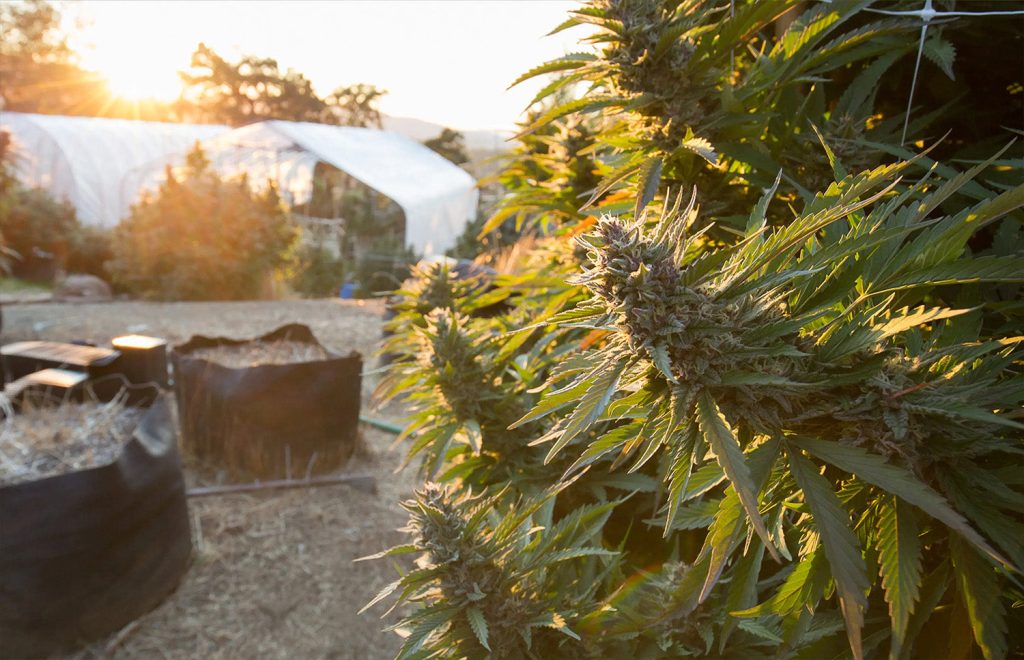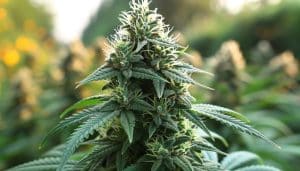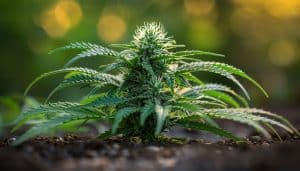- Spain was a fairly tolerant territory in global cannabis policies over the past 20 years.
- It is a European country that seemed attractive in this sense, with the birth of Growshops in the early 2000s and internationally deemed seed banks, more and more cannabic fairs, the appearance of “cannabis social clubs” at Four corners of the country, with such an important presence of the latter in Barcelona where many fans of the plant came to make their cannabic pilgrimage until then.
- CBD flowers and products have also created a real tsunami recently. Recently, it would seem that the Iberian panorama is changing and that we are even witnessing a step back, but what happens to the country of Don Quixote currently?
THE BIRTH OF SPANISH GROWTHS
At the end of the years 90 A fairly exotic new phenomenon appeared on Iberian soil, shops of a new genre was born: Growshops. These shops filled with all the equipment necessary to grow cannabis (lamps, ventilation systems, culture chambers, fertilizers, phytosanitary products, substrates, pots, highest quality cannabis seeds, books, etc.) and that we have not seen so far exclusively in Holland, arrived gradually in Spain. They appeared and developed quickly in number across the country.
Most of them looked like small rather disorderly shops, with a somewhat mystical atmosphere inside, but in reality, they were very warm places, where everything passionate could share her knowledge, her experiences, acquire equipment, genetics and spend pleasant moments in the company of many sympathetic cannabulters in this fabulous “old -fashioned” meeting crossroads.
Let us remember that at that time the Internet was not as democratized as today, these places were therefore real gold mines for the followers of this formidable plant. Availability both of the information relating to culture as well as dedicated products, was much rarer at the time. It was therefore quite logical to attend an unprecedented success of the latter.
It would seem that for a few months certain growshops located at the four corners of the country, face interventions from the Guardia Civil, which hoves, among other things, to CBD flowers in these establishments. The authorities wish to verify that these floral tops respect the legal rate of 0, 2% THC, without taking into account the CBD content. By also checking the traceability of the origin of the products, the corresponding administrative documents, the accounts, etc.
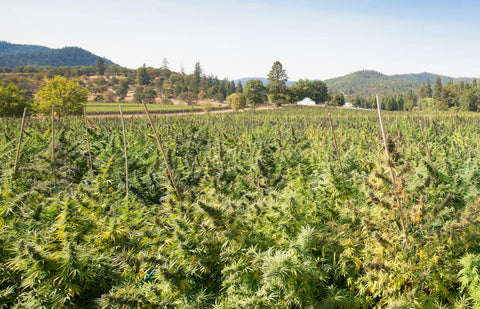
Some companies have also been accused of complicity in direct participation in drug trafficking, as is the case for a Almeria Growshop, of which 18 people were detained, including several employees and customers of this company. According to the version of the Spanish police, the growth had a direct relationship with drug traffickers and acted as “Employees directly involved in the development of an illegal activity”. In this case, the charges selected against them constitute several crimes against public health and also belonging to a criminal organization.
The major problem is that there is clearly a lack of legal regulation, which would allow each actor to know exactly the possibilities offered to them. It is obviously a dramatic deficiency of the current Spanish system, A market that has been tolerated for more than twenty years and which has reached a considerable size today. Only, it is not framed by any law specifically dedicated and adapted so far. This is a tragic aspect for all players in the sector.
Spain being geographically near Morocco, there has been a real culture of hashish there for about forty years, that is to say since the period of Francoism (early 1980s). Even if cannabis has been completely illegal for the Iberian Peninsula for a long time, it is important to recognize that the Spanish are real connoisseurs in high quality haschich.
Many people think that Spain is the new “Eldorado” for all cannabis lovers, but in reality the possession of all narcotic products is completely prohibited, although there is a certain tolerance concerning consumption or ‘moderate use of cannabis. The Spaniards have been significant cannabis consumers for decades.
The RIF region in Morocco is well known to all haschich lovers. There is also an interesting evolution to observe and mention here, because at the start the Moroccan haschich came from a variety of local kif called “Beldya”, which is a well -known endemic kif strain and appreciated by the Berbers, as by the Moroccan population in general. However, the latter was strongly competed with the appearance of Dutch marijuana hybrids, which make it possible to obtain amounts of abundant flowers in grams per plant, and the THC rate of which is much higher compared to the local Beldya.
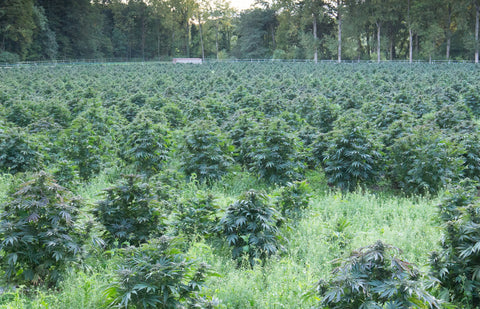
This is the reason why, around 2004, we first saw the “Khardala” appear, of which we do not know exactly the origins, but it would seem that it is a hybrid between the “beldiya” and a Unidentified Dutch hybrid. The use of this variety marked the first evolution of the Moroccan hashish. Nowadays, we know that there are many modern varieties, which are used to produce the hashish, whose properties of flowers have nothing to do with what they were originally.
You should know that in Europe, most of the illegal cannabis traffic was generated by the hashish which came from Morocco until the early 2000s. At the time, it is completely different, because self -culture has Known an exponential development in Europe, as at the global level, because consumers are more interested in marijuana global, and that they have naturally become much more demanding on the quality of the finished product than before.
THE APPEARANCE OF SPANISH SEED BANKS
If we put things in context, at the time, the cannabic scene was largely dominated by the Dutch. We were at the beginning of the 2000’s, Amsterdam was clearly the emblematic capital of recreational cannabis in Europe, “The place to be” at that time. Any passionate had to make a pilgrimage worthy of the name, in order to discover the mythical atmosphere of coffee shops Dutch as to succumb to the enticing menu of the products they then offered.
Varieties names like Jack HERER, White widow, Skunk#1, Super skunk, Silver Pearl, Super silver Haze, White Rhino, Orange Bud were well known and the growing word of mouth perfectly reflected their attraction as a growing demand from the public.
The most popular cannabis seed banks at the time were Sensi Seeds Bank, Dutch Passion, Mr Nice, Serious Seeds, Green House Seeds, KC Brains, Sagarmatha Seeds, Soma Seeds, Homegrown Fantasy Seeds And Nirvana. All these seed banks were exclusively Dutch.
This supremacy or monopoly only lasted a certain time, quite simply, because the success of the Spanish growths was such that the level of knowledge and the experience of cultivators quickly evolved in the entire peninsula. Moreover, The Dutch political context has unfortunately experienced an unfavorable turn from 2003-2004, with the appearance of a more policy repressive. This led to a strong slowdown in the cannabis industry in the Netherlands and the move from most Dutch companies to Spain.
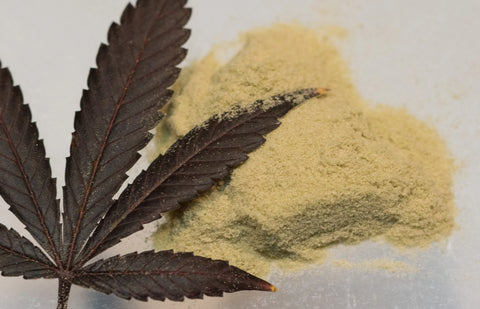
The Spaniards therefore quickly reacted to the Dutch movement and knew how to optimally benefit from the opportunity offered to them. So much so that they have become great specialists in feminized cannabis seed, something that the Dutch had not yet managed to do at that time.
This is how we saw the first banks of cannabis seeds appear in Spain around 2005, with the birth of Dinafem, Sweet Seeds, Medical Seeds, Cannabiogen, Resin Seeds, Reggae seeds, Eva Seeds, etc. It is good to know that the majority of these brands were originally created by entrepreneurs from growshops. For the most part, they practiced the two activities jointly, it was completely logical at that time, because they were in the foreground of this market.
The market response has exceeded all the expectations that could be expected, because most of these seed banks had incredible success. The growth of some of them was so strong and rapid that their popularity has become global. It took place thanks to planetary development of the Internet and a extremely strong demand. These Spanish companies have become real international references in this area. The legal trade in cannabis seeds in Spain was hitherto supported by a decision of the 2003 “Supremo Tribunal”.
Everything was going perfectly well in the Iberian Peninsula until September 16, 2020 for all companies in this sector, only this date is accompanied by a new tragic because it is the day when the group Pot Sistemak s.l., owner of the brands Dinafem, Lamota And Humboldt Seeds Organization, underwent an unprecedented police intervention, resulting in cessation of all of their activities.
Agents of the Guardia Civil And The National Tax Agency intervened in their warehouses, also with the help of agents The Spanish Medicines Agency and Health Products of the Ministry of Health, and proceeded to a search following the order given by The central investigation court n ° 6 of the Audiencia nacional, and promoted by the anti-drug prosecution of the same judicial entity.
The facts alleged against 18 people charged in that case constitute crimes against public health, belonging to a criminal organization and money laundering. Today, two years after the facts, the case is still under investigation, without further details. Case to follow …
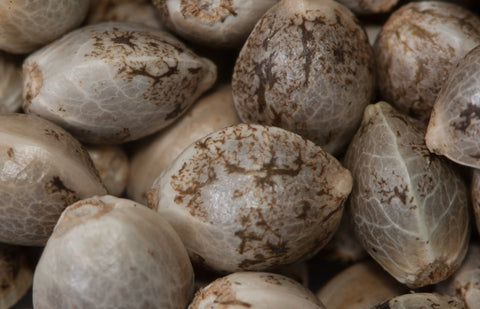
This means that their economic model has worked for more than 20 years, they were major players in the European cannabis industry. However, no one knows now how things will evolve for other actors exercising the same activity.
The big problem of all this is that some of these companies have experienced dizzying growth, because high demand was there and the growing market, only there is still no regulatory legal framework today and that is all the whole bottom of the problem. We do not build an empire on fragile foundations. In addition, it seems that no political will manifests itself in this sense. Which shows us the great fragility of the whole. While we are at a time when legalization seems to be the most logical and pragmatic option for the good of our society.
Spanish cannabic fairs are large and beautiful festive events that bring together all market players since 2002, date on which was held First edition of the Spannabis At Palau Sant Jordi de Barcelona.
We total a dozen cannabic fairs annually across the country before the pandemic COVID-19. These events were experiencing incredible attendance, especially Spannabis because it has international renown. It therefore attracted both the most famous companies in the sector and mass visitors, from countries like the UNITED STATES, Canada, Australia, Colombia, Uruguay, Chili, Argentina, Mexico, China, Israel, as well as vast majority of European countries were represented there.
With an average attendance exceeding 30,000 visitors per day, it is quite easy to realize that it is simply the major event in the sector in Europe, where plethora of professionals can meet, but also enthusiasts experts in the matter.
During these festive events, you could meet a large number of professionals in the sector on their stand, offering a Very complete range of services (Marketing/digital communication, cannabic press/advertising “, specialized law firms and other specific services), like all The equipment necessary for the cultivation of cannabis.
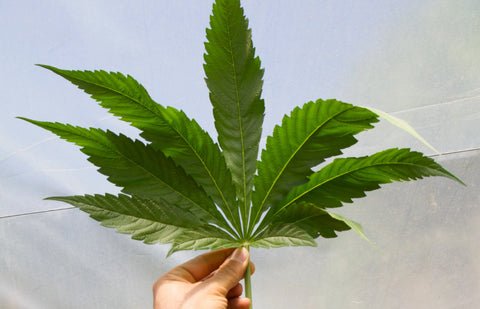
We find there among others, Seeds, fertilizers, culture cupboards, lamps, ventilation, autonomous management systems (watering/Illumination/Aeration/CO2), of various culture (Hydroponia/Airport/NFT, etc.), pots, anti-odor devices (active charcoal filters/aerosols/gels and deodorant blocks) and water treatment, harvesting machines, furniture and consumables for good preservation of harvest (Cedar wood set, decorated glass jars, hemp containers/recycled materials) etc.
The sector has grown well in the last decade, because we now really find all the complete and practical panoply of the “Perfect little grass cannabulter”.
She was the pioneer of the genre, with more than 17 editions which have taken place over the past two decades. The city of Barcelona experienced a massive crowd during the duration of the Spannabis, most often with many events organized by the Local cannabis Social Clubs (CSC). Among the other fairs in the sector, it was possible to attend around 2008 to the Highlife of Pamplona, Expocannabis in Madrid from 2010, Spannabis in Malaga, Growmed recently become Cannamed in Valence, Expogrow to Irun from 2012, Expocañamo in Seville, Viñagrow in Villarrobledo And Intercannabis In Alicante.
The total number of cannabic fairs is indicative of development and the relevance of the sector from 2010, it is obvious to realize the strong enthusiasm experienced by the cannabis industry in all its aspects.
All of these events took place without the slightest hook for more than 20 years, yet we could not fear the disappearance of these in the near future?
We know the objective of this type of event perfectly, which is to bring together the widest possible palette of professionals in the sector and to offer the opportunity to the public to be able to meet them directly. It is also a festive event, where Many various and varied fun activities (concerts, games, etc.) to entertain the public, with also catering stands of all kinds in case of hunger or thirst.
All this represents a leading perception, but the essential role of these fairs of cannabis is above all to promote, animate and of boost all activities in the sector, with the aim of promote economic growth as perpetuate this sector in its own right.
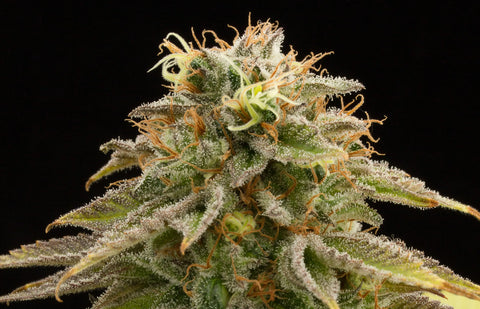
Through these few lines, we understand that we are faced with a big stranger, but above all that everything is possible, this is why it is better to remain objective for the time being and to wait to see how the things.
In any event, these salons are and remain superb meeting crossroads between passionate customers and professionals. When we witness this type of festive demonstration, as in Barcelona spannabis for example, it would seem that everything is perfectly legal, while in fact it does not illustrate the reality authorized by law.
If we do several research on Google, it is quite easy to realize the magnitude of the offer of the many varieties of “seeds”, as well as all the products necessary to cultivate your favorite plant, which are available and Easily accessible through the plethora of merchant sites on the Internet.
Be careful not to be mistaken, because this does not only concern a country like Spain, because a report from Europe clearly reflects that cannabis consumption is very high in France, Italy, Portugal, in the Kingdom -Uni, in Germany, in Belgium as in other European countries. All these elements suggest that the European drug policy should be widely revised about cannabis, because it is completely obsolete and no longer corresponds to the world’s world tendency of current hemp.
THE CANNABIS SOCIAL SPANISH CLUBS (CSC)
The “cannabis social clubs” or cannabis social clubs, are non-profit associative structures, composed exclusively of adults. Each cannabis social club is in fact concretely Consisting of a group of members whose number is limited, which shares, which organizes and manages production such as the distribution of cannabis in a closed circle, exclusively for the personal needs of their members.
It is a fairly fragile cannabis regulation model that we find internationally, in countries like Spain, New Zealand, Belgium, the Netherlands, Slovenia, Uruguay, Germany And England.
The first club social cannabis to have appeared in the Iberian peninsula was Arsec in 1993.
. followed by CCCB (Barcelona cannabis catadore club), there Maca (Moviment Associatiu Cannàbic d’Autoconsum). These 3 associations were Catalan, then The Amec . All these associative clubs are part of the history of Spanish cannabis.
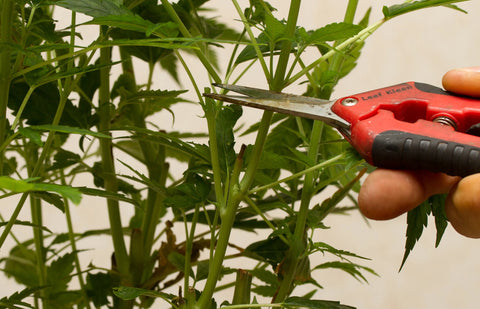
Many new cannabic associations have emerged from 2002, through the entire Spanish territory. This was the consequence of a court decision which claimed that self -culture for personal consumption is not a crime, from the moment there is no purpose of proven traffic. More than 1600 cannabis social clubs would be identified throughout Spain, which reflects the extent of the phenomenon.
Although a lot of time has elapsed since the appearance of the first CSCs, However, this associative model remains very fragile. Their perception with public opinion is becoming more and more favorable over time, but that is not enough, only a real regulation would allow them to glimpse a more serene future. Unfortunately, many are regularly undergoing police interventions for multiple reasons nowadays. This national movement has even succeeded in creating several provincial and regional federations, named the College (Federations of Cannabic Associations).
In recent news, several cannabis social clubs have known the courts of the courts, with convictions pronounced after their respective judgments. As was the case for AUETCG (The Asociación de Usuarios Para El Estudio Teracéutico del Cannabis de Gandia), which was condemned by the Valencia audiencia to the final closure of the association, with also one three -year prison sentence For the president and two years for the secretary and the treasurer.
The association “Casa Maria” de Pontevedra was also closed by the provincial supreme court, with the key three -month prison sentence For its two founders. The CSC Acmefuer Located in Las Palmas in the Canary Islands was also sentenced by the local provincial court, including 13 members
have received prison terms ranging from 6 to 15 months, with strong fines of up to several hundred thousand euros.
BARCELONA CSC
Barcelona is a very attractive tourist destination for travelers from all over the globe. It is true that it is a city where it is very pleasant to stay, thanks to the beauty of its historic center, with the famous Sagrada Familia of Gaudi, THE thousand colors of there Rambla, a well -appointed port area, his very numerous and sumptuous shops of all kinds, the diversity as Exoticism of its delicious restaurants, hotels, or the richness of nightlife that she can offer you, all this under a Ideal Mediterranean climate.
It must also be recognized that it has become a place to discovery of first choice, for all fans passionate about cannabis in recent years. With over 200 cannabis social clubs At the heart of the Catalan capital, you are spoiled for choice. The diversity of products presented is such that you will easily find shoe at your foot.
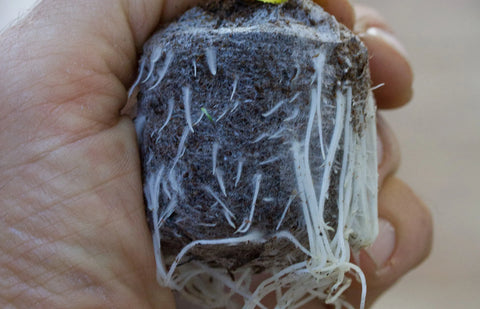
It is quite possible to meet products presenting A quality standard close to those found in California Today. The Spaniards now have a long experience in the culture of cannabis, their level of knowledge and requirement are therefore logically high. You no longer need to go to Los Angeles to consume Californian products “Top Shelfs” (superior quality), Barcelona will surely satisfy all your desires.
We can even say that the Barcelona cannabic scene has largely exceeded all the charm of the beautiful Amsterdam in this sense. During the Spannabis, 1er European Cannabic Fair, the many CSCs in Barcelona organize many “pop-up” events (short -lived animations), throughout the city. This generates an important dynamic on the part of the cannabic community within the city.
Most of these cannabic associations have been set up from 2013, their number has only growed strongly since that date. Their success and notoriety are such that many of them have established close links with recognized actors in the American cannabis industry. The very famous brand « Cookies »Rapper Bewild, from San Francisco, also took up residence in Barcelona.
“FAM cookies » recently decided to open a clothing store, Thus that a “cannabis social club” with the image of the brand. This is anything but a coincidence, because it is a strategic establishment in a European city where it is rare, tolerance for cannabis is great. It is therefore an interesting position for this large Californian group, within the European cannabis industry.
A glimmer of hope bringing them a momentum of serenity appeared in 2016, because the municipal council of Barcelona had succeeded in obtaining Urban planning regulations incorporating the regulation of the various CSCs of the city. This contained certain legal conditions to be complied with concerning the establishment as well as the proper functioning of these establishments.
Unfortunately, a dramatic stroke occurred in the month of July 2021, because the Supreme Court of Catalonia Just decided to cancel this court decision, by explaining that no municipality is competent to take the right to create a regulation of this nature. They argue that such a decision can be adopted, if and only if it comes directly from the central government of Madrid. The town hall of Barcelona had appealed to the cassation with the Spanish Supreme Court, who rejected the latter last April. This town planning regulation was the only legal protection available to the cannabic clubs of this municipality.
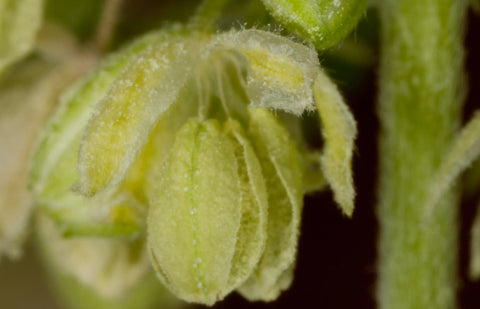
This sad news therefore forced the city of Barcelona to send a registered letter to each association by transmitting the modification of their operating rules. The shower was frozen for the leaders of the various Barcelona structures, reading this new regulation. The words are clear, they will no longer be able to promote, cultivate, facilitate Or provide of cannabis to their members.
From now on, this type of establishment has exclusively the role or the possibility of organizing seminars, meetings to provide information to its members. But nothing more on the program, more clearly, it is a mechanism of neutralization of these structures. To top it off, they are announced that inspections will be carried out in number, in order to verify that each association respects the law.
For now, Catfac (The Federation of Cannabis Social Clubs in Catalonia) has already scheduled a meeting with the municipality of Barcelona in September, in order to approach this subject in depth and to try to find a way out which would be other than the massive closure of these establishments.
On the other hand, it would seem that Barcelona as its periphery are experiencing a strong resurgence of crime over the past 5 years, with the presence of several national criminal organizations And international. Serious facts such as settling of accounts or theft by violence with violence, are facts which are becoming more and more frequent in the Catalan capital and its suburbs.
In addition, a new phenomenon now appears in neighborhoods like Sant Roc de Badalona or at the Mina de Sant Adria of Besos, because some criminal bands are trying more and more to put pressure on certain inhabitants by establishing a climate of terror in their neighborhood, in order to drive them out of their homes. All this in order to recover these, to install illegal cannabis cultures there and thus increase their economic activity. It seems that these organizations no longer have limits, where will this criminal ascent stop?
By being fully objective, what is the solution to this? The return of the black market in the streets and parks of Barcelona, with its share of obscurantism and exhaustive crime?
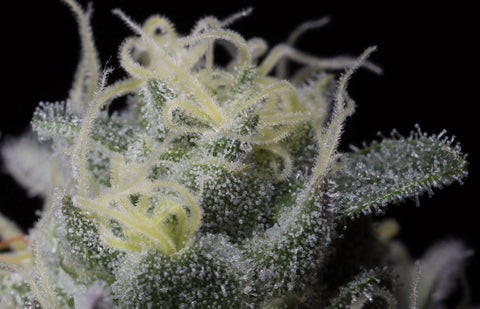
This does not seem frankly to be a viable solution in terms of health as well as public security. Again, the only one pragmatic solution is simply the regulation for the good of all, Accompanied by a social project to be supported by the political world, in order to reorganize this failing societal part currently in this Spanish metropolis.
The Spanish state voted for the regulation of the therapeutic use of cannabis on June 27, and not without difficulty. It took the immense courage of a widely recognized cannabic activist, in the person of Carola Perez, which had to participate in many parliamentary auditions, in order to be heard on the viability of the use of cannabinoids in medicine. Despite its many permanent suffering, caused by acute chronic pain, following a heavy coccyx operation many years ago, Carola won a great victory for many patients across the country.
Carola consumes several grams of cannabis per week, for many years in order to overcome the pain that prevents her from living normally on a daily basis. It is rare that the political group consults a civilian person to make important societal decisions, and yet that is what happened, because the latter suffer from a great ignorance on the subject.
THE CBD MARKET IN SPAIN
THE cannabidiol better known as CBD, is actually a cannabinoid that does not produce psychotropic effects. We can even say that it is a THC antagonist, which means that he significantly cancels its effects When it is consumed simultaneously or a posteriori of the first mentioned. However, it is indeed a phytocannabinoid derived from the cannabis plant, which is also found in different proportions in all of the varieties of hemp recorded in the European catalog containing only 0.2 % THC.
Everything related to cannabis is always a sensitive subject within our current society. Although The UN as The anti-doping commission of the Olympic Committee downgraded from the category of dangerous drugs, and that more and more beneficial virtues (Muscle recovery after effort, improvement in sleep quality, etc.) is assigned to it, cannabidiol has a hard life. Despite an safety today sufficiently recognized, the CBD still creates many harmful controversies, wrongly.
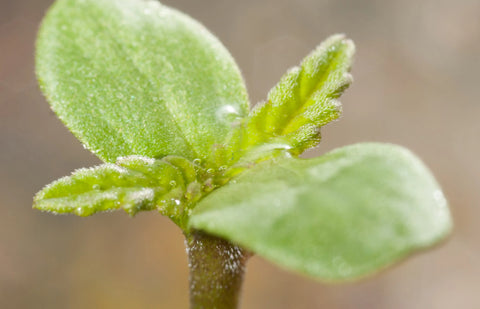
Yet, The European Court of Justice recently restored an ounce of truth in the case Kanavape Before the French courts, saying loud and clear “That one cannot prohibit what is not prohibited” On a simple interpretation of the facts. THE Two young French entrepreneurs, Sébastien Bèguerie and Anthonin Cohen, were then acquitted the facts which were accused of. In 2014, the society Kanavape wanted to market a “vape pen cbd” or CBD vaping pen, whose content in THC perfectly respected French law (0, 2%).
This CJEU decision has been heard by the Spanish courts, however it is, to date, supported by any clear European regulation on this subject, it could therefore exert a certain influence, but does not have the same weight as right -and -good law texts. Therefore, the word of the end returns to the interpretation or appreciation of the local jurisdiction concerned.
Many European countries today market flowers such as CBD products with clearly defined regulation, without the slightest problem. On Spanish territory, there is a strong craze for this cannabinoid since 2020, with the appearance of new companies dedicated to production as well as the transformation of the latter. Which has mainly given rise to many police interventions directly on large -scale production sites at Grenade, Almeria, in Catalonia And in other provinces of the peninsula.
The concrete problem here is that many people have embarked on an activity not regulated by pure economic opportunism, having a deep ignorance of the sector and the laws around it. The tragic purpose is the one we know today.
Following the appearance of circular of the Ministry of Agriculture, what looks like to a form of start of regulation marked the plunge. More concretely, any company wanting to undertake the production of CBD cannabis for whatever the purpose, must make a request to The Spanish Medicines Agency, in order to obtain a production license, because for the time being, CBD cannabis remains an amazing in Spain.
Recently, the Guardia Civil has searched Many “Growshops” And tobacconists Who marketed different CBD derived products, but these are good flowers who held all their attention, because they have the same appearance as their cousins rich in tetrahydrocannabinol (THC). They simply wanted to ensure compliance with the legal rates contained in the products, such as the administrative and accounting traceability of suppliers as well as visited establishments.
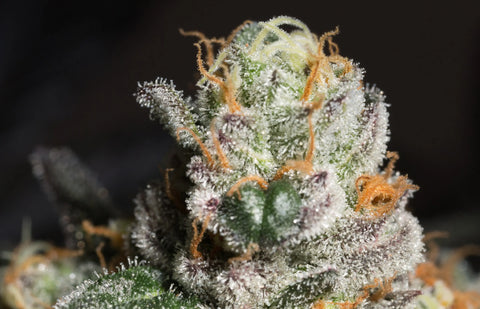
It looks like a fairly sustained screw tour on the part of Spain, is it the result of a lax of more than 15 years that gives the authorities the feeling that cannabis is a subject that has completely slipped their hands And that they want to regain control?
Or that the distribution of medical cannabis production licenses from AEMPS (Spanish medicine agency), leads to a certain (re) general pressure on the part of Big Pharma Of all the “underground” players who have made up and structured this industry for over 25 years?
Or that the European Union, launched an appeal to the Spanish authorities to greatly reduce crime as the general development linked to the cannabis industry on their soil? (With a European anti-drug plan supported by a budget of more than 3000 million euros, announced last year)
Unfortunately, we do not yet have the answer to this enigma, however these 3 scenarios are plausible. We must admit without the shadow of a doubt, that Spain has been the most tolerant European country on the subject in the past 20 years, Which has given rise to the great disorder that can be observed there today. This is a fact that you have to know how to recognize.
There is a common factor in all this which is the cannabis plant, on the other hand, the problematic side is that we now find it in environments whose legality is variable, with practices more acceptable than others and others harmful aspects, such as organized crime, causing acts of violence unprecedented and a underground economy Always stronger.
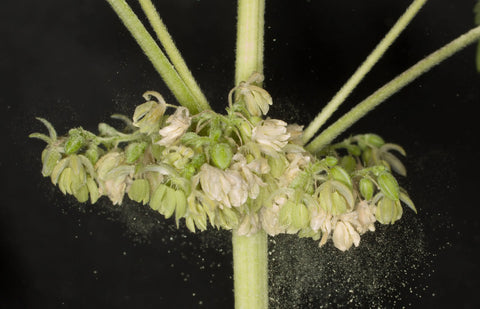
On the other hand, it is also necessary to think of thousands of workers finding themselves today in a precarious situation, who are citizens of the most respectable, having ethical and moral values, respecting life in society, who have a certain Know-how as an increased experience, within a sector of activity that does not yet have the recognition it deserves.
These contrasts deserve to be underlined to have a better understanding of the whole. This category of people fortunately represents the majority of this industry, however, it is an aspect that remains quite discreet, and even imperceptible in public opinion, because these same people suffer from strong stigma or social discrimination.
They are clearly victims of unfair marginalization, which is the result of an unsuitable policy. All this demonstrates the international failure of drug policy, and in particular hemp in the global sense, which shows a deep ignorance of the states, because they cannot distinguish the different crucial aspects with objectivity.
However, it is really time to open your eyes, to realize that the THC and the CBD have a beneficial role to play respectively, whether for medical or recreational use of cannabis, like many others phytocannabinoids present in hemp. It is now necessary, that the sale and possession of marijuana are completely legal, not in Spain, but also in a country like France, which is the largest consumer of the European Community.
The conclusion of all this is that the plant plays a crucial role in our society, at different levels, it is now up to the political class to kindly give it the place it deserves through a official regulation, clear, structured, fair And objective Faced with the needs of current society.
